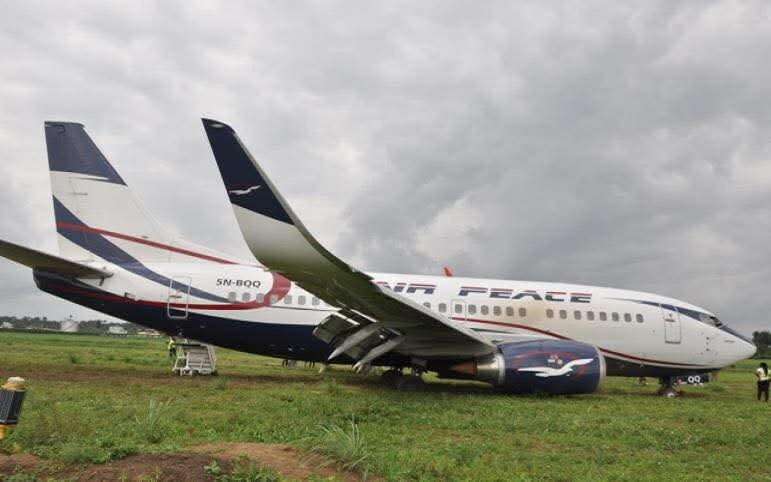A serious aviation incident involving an Air Peace Boeing 737-500 that overshot the runway at Port Harcourt International Airport in July 2025 has revealed a disturbing breach of safety protocols: both pilots tested positive for alcohol. The Nigerian Safety Investigation Bureau (NSIB) released its findings, highlighting not only the crew’s impairment but also a significant authority gap in the cockpit that contributed to the dangerous runway overrun.
The flight, carrying 96 passengers and seven crew members from Lagos to Port Harcourt, was a routine operation until its final moments. As the aircraft approached the runway, its trajectory was too high. The captain, an experienced pilot with over 10,000 hours on the Boeing 737, chose to continue the landing despite a recommendation to “go around” from the younger, less-experienced first officer.
The aircraft touched down late, almost three-quarters of the way down the 3,000-meter runway, leaving insufficient space to stop. It overran the runway by nearly a kilometer before coming to a halt on the grass. Fortunately, all passengers and crew disembarked safely with no injuries.
Post-incident toxicology tests confirmed that both the captain and first officer had consumed alcohol. Even more alarmingly, a flight attendant on board also tested positive for cannabis. This discovery has raised serious questions about the airline’s pre-flight screening and safety culture.
The NSIB’s report pointed to a significant “authority gap” in the cockpit. The vast difference in age and experience between the 64-year-old captain and his first officer, who had less than 900 hours of flight time, made it difficult for the junior officer’s safety warning to be heeded. In aviation, this imbalance can be fatal, as it prevents critical safety procedures from being followed.
The NSIB has strongly urged Air Peace to strengthen its internal checks to ensure all crew members are fit for duty. The bureau also advised the airline to reinforce training on “go-around procedures,” emphasizing that pilots should not hesitate to abandon a difficult approach and try again.
This incident serves as a critical wake-up call for Nigeria’s aviation industry. While no lives were lost, the potential for a catastrophic outcome was high. Runway overruns are one of the most serious risks in flying, and the presence of alcohol or drugs multiplies that danger exponentially. Regulators have made it clear that a no-compromise approach to safety and discipline is essential to prevent future tragedies.





